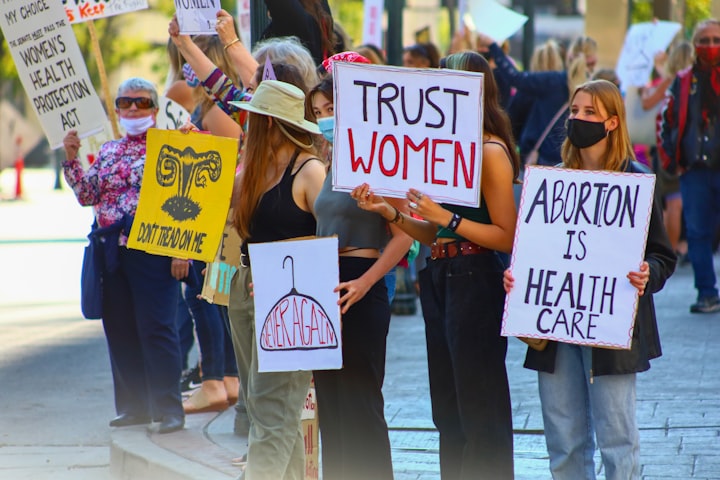
In December 2020, Argentina made a historic stride towards reproductive rights by legalizing abortion. The passage of the law marked a significant shift in the country's stance on this issue and had a profound impact on the lives of women and their access to safe and legal abortion services.
Prior to the law's enactment, abortion in Argentina was highly restricted, permitted only in cases of rape or when the mother's life was in danger. Women seeking abortions often resorted to unsafe and clandestine procedures, putting their health and lives at risk. The legalization of abortion has changed this landscape by decriminalizing the procedure and ensuring that women have the right to make decisions about their own bodies.
The law allows for abortion up to 14 weeks of pregnancy, and beyond that limit in cases of rape or when the mother's health is at risk. It also mandates that public health services provide access to safe and legal abortions, making it more accessible and affordable for women across the country.
The legalization of abortion in Argentina was the result of years of tireless activism and advocacy by women's rights groups and activists who fought for reproductive justice. It sparked nationwide discussions, both in support of and opposition to the law, highlighting the deeply rooted societal divisions surrounding this issue.
The impact of the law goes beyond the immediate access to safe abortion services. It represents a significant step towards recognizing women's reproductive autonomy, bodily autonomy, and human rights. It has brought attention to the importance of comprehensive sexual education, contraceptive access, and support for women facing unplanned pregnancies.
The legalization of abortion in Argentina has also had broader implications at the regional and global levels. It has inspired renewed debates and movements for reproductive rights in neighboring countries and around the world. It serves as an example of how progressive change can be achieved through grassroots activism and political will.
However, despite this landmark achievement, challenges remain. Implementation and ensuring access to safe and legal abortion services for all women in Argentina is an ongoing process that requires continued advocacy and support. There are also ongoing debates and resistance from conservative groups opposing the law, highlighting the ongoing need for education, dialogue, and efforts to combat stigma surrounding abortion.
Nonetheless, the legalization of abortion in Argentina represents a significant step forward for reproductive rights, women's autonomy, and gender equality. It serves as a powerful example of progress and a beacon of hope for those advocating for reproductive justice worldwide.
The legalization of abortion in Argentina was a groundbreaking moment that reflected the growing recognition of women's rights and autonomy over their own bodies. It was a culmination of years of tireless activism and advocacy by women's rights organizations, feminists, healthcare professionals, and grassroots movements. The law's passage was a testament to the power of collective mobilization and the strength of the voices demanding change.
By legalizing abortion, Argentina joined a relatively small group of Latin American countries that have decriminalized the procedure. This landmark decision not only expanded reproductive rights but also sent a powerful message to other nations grappling with restrictive abortion laws. It emboldened activists and advocates across the region, sparking renewed momentum in the fight for reproductive justice.
The impact of the law has been significant. Women who were previously denied safe and legal access to abortion can now seek medical care without fear of criminal prosecution. It has saved lives and protected the health and well-being of countless women. Moreover, the legalization of abortion has shattered the stigma surrounding the procedure and opened up avenues for public discussions about reproductive rights and bodily autonomy.
The law has also had far-reaching social and cultural effects. It has prompted a reexamination of traditional gender roles, challenged patriarchal norms, and fostered a more inclusive and progressive society. The movement for legalizing abortion in Argentina created spaces for open dialogue about reproductive health, consent, and the rights of women. It has contributed to a broader cultural shift in which women's voices and experiences are increasingly centered and valued.
However, it is important to note that the passage of the law does not mark the end of the struggle. Ongoing efforts are needed to ensure that the law is effectively implemented, healthcare providers are trained and equipped to provide abortion services, and access to reproductive healthcare is expanded across the country. Challenges remain, including the need for comprehensive sex education, contraceptive access, and dismantling deeply ingrained societal biases.
The legalization of abortion in Argentina represents a significant milestone in the fight for reproductive rights and gender equality. It has set a precedent for other nations and emboldened movements worldwide. The journey towards full reproductive justice is ongoing, but the progress made in Argentina stands as a testament to the power of activism and the ability to effect positive change.
About the Creator
Noel
Ink and Inspiration: The Journey of a Powerful Writer
be-blessed






Comments
There are no comments for this story
Be the first to respond and start the conversation.